News
NIN: World Bank Disburses $45.5m For Nigeria’s ID4D Project
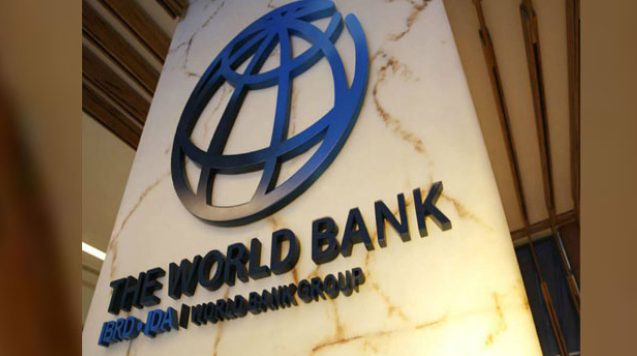
By Kayode Sanni-Arewa
The World Bank said it has disbursed a total of $45.5m to the National Identity Management Commission (NIMC) under the Digital Identification for Development (ID4D) project.
According to the ‘Nigeria Digital Identification for Development Project’ report published by the bank on its website, the project is aimed at enrolling more Nigerians for the National Identification Number (NIN).
According to the apex bank, Nigeria was able to secure the funding with the passing into law of the Nigerian Protection Act in June last year.
The fund was disbursed in multiple tranches between December 2021 and April 2024 and disbursement is still ongoing.
The $45m so far released represents about 10.5 per cent of the total project’s cost, which is put at $430m.
While the June 1, 2024 deadline set for the enrollment of 148 million Nigerians for the NIN has passed and Nigeria is still lagging, the Bank described the progress of the project so far as ‘moderately satisfactory’. NIMC recently disclosed that 107.3 million NIN had been issued as of April this year.
The release of funds for the project which comprises a combination of loans and grants, was predicated on the institutionalisation of data protection.
The development comes on the hills of a recent warning by the NIMC to Nigerians, against the activities of some unauthorised websites harvesting people’s data
The websites are idfinder.com.ng, Verify.ng, championtech.com.ng, trustyonline.com, and anyverify.com.
On June 20, Paradigm Initiative, a pan-African social enterprise, raised alarm over its discovery of the sale of NINs, bank verification numbers (BVNs), and other personal data of Nigerians on a website for as low as N100.
According to the organisation, a website known as ‘AnyVerify.com.ng’ was discovered to be involved in the commercial distribution of personal and private data of Nigerians.
Paradigm Initiative added that several unauthorised websites are claiming to hold and provide access to sensitive personal and financial data of Nigerian citizens “for as little as 100 Naira”.
“This alarming development presents a major breach of the fundamental rights to privacy, a breach of data privacy rights, and poses significant risks to individuals and the national economy,” the firm said.
Reacting to the report, the commission said AnyVerify.com.ng and other aforementioned websites, are data harvesters and unauthorised to access or manage sensitive data.
The agency also denied the exposure of sensitive data of Nigerians “as alleged and reported”.
“The commission, at this moment, assures the public that the data of Nigerians has not been compromised, and the Commission have not authorised any website or entity to sell or misuse the National Identification Number (NIN) amongst all the identities stated in the report,” NIMC said.
“NIMC urges the public to disregard any claims or services these websites offer and should not give their data as they are potentially fraudulent and data provided by the public on such websites are gathered and stored to build the data services they illegally provide.
“Consequently, the public should know that the commission has taken robust measures to safeguard the nation’s database from cyber threats- a secure, world-class, full-proof database is in place.
“The commission’s infrastructure meets the stringent ISO 27001:2013 information security management system standard, with annual recertification and strict compliance with the Nigerian Data Protection Law.”
NIMC also advised Nigerians to avoid giving their data to unauthorised and phishing sites, stressing that licensed partners or vendors are not authorised to scan or store NIN slips but to verify them through approved channels.
“This poses the danger of data harvesting and comprises individual data,” the commission added.
“The Commission reaffirms its commitment to upholding ethical standards in data protection in line with federal government directives and data privacy regulations.
News
Enugu Reps PDP Caucus Welcomes LP Members To Its Fold
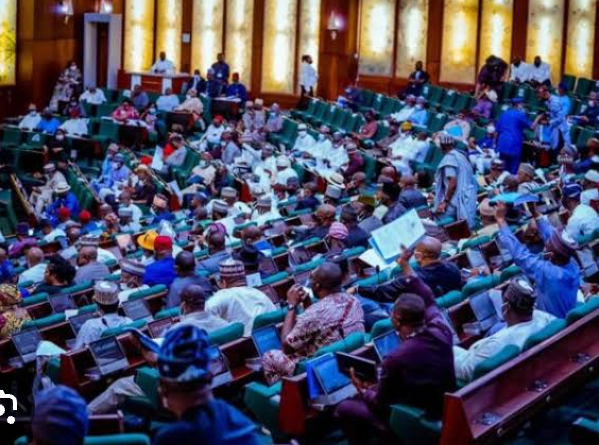
Members of the Enugu State Caucus of Peoples Democratic Party, ( PDP) in the House of Representatives, Rt. Hon. Nnolim Nnaji , Rt. Hon. Martins Oke and Hon Anayo Onwuegbu have welcomed Rt. Hon. Dennis Agbo and Hon. Chidi Mark Obeta of Labour Party, (LP) to the PDP fold.
They observed that the visionary leadership of Dr Peter Ndubuisi Mba in Enugu State has ignited massive decamps and unprecedented upsurge of membership of the Peoples Democratic Party, (PDP) in the state.
The caucus in a statement issued after the two members of the House of Representatives, Rt. Hon Dennis Agbo of Igboeze North/ Udenu and Chidi Mark Obeta who represents Nsukka/Igboeze South formally announced their transfer of membership to PDP at the resumption of House plenary on Tuesday said it was gladdening to receive them into the PDP fold.
They stressed that PDP in Enugu State was witnessing a great rebirth as a result of the transformative development agenda being unleashed in various sectors of the economy of the state by Governor Mba which has received global commendations.
The Enugu State caucus Leader, Rt. Hon. Nnolim Nnaji on behalf of the members further noted that Governor Mba’s investments in infrastructure, agro economy, and security among others have made Enugu State a tourist’s haven adding that with the good governance structure he has put in place, his second tenure would be a walkover.
News
2025 budget: Tinubu Seeks NASS Approval For N1.784trn FCT Statutory Budget
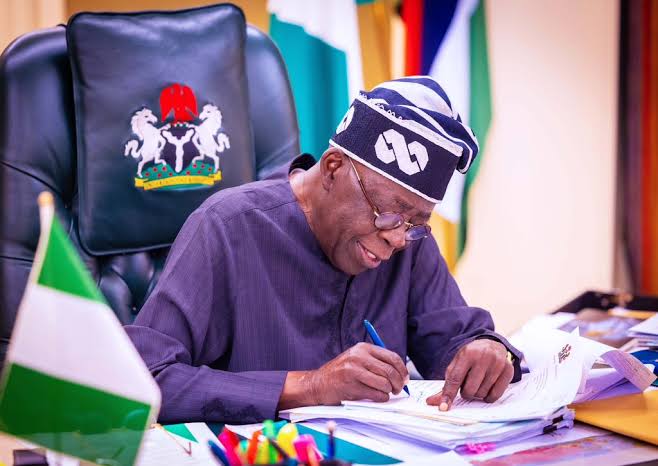
News
Finally , DTHA becomes one party assembly as Speaker, 21 other PDP members defect to APC
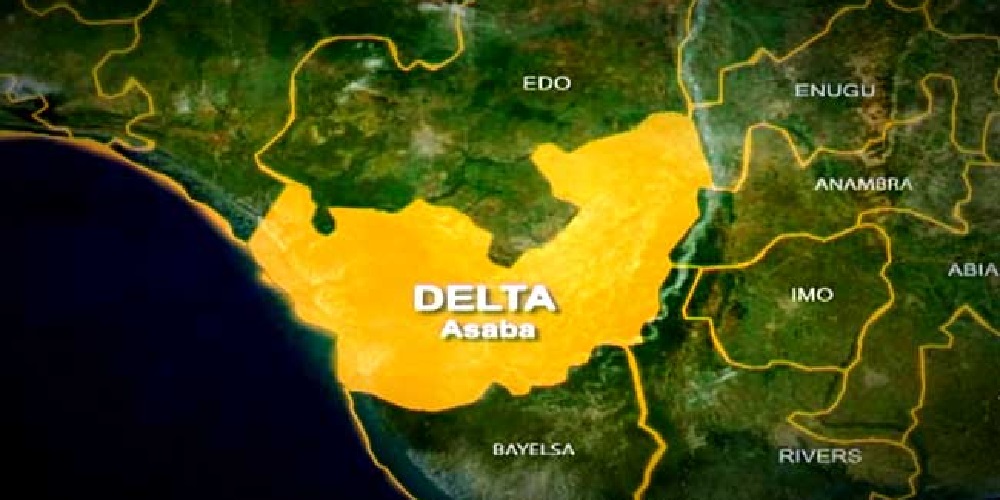
Speaker of the Delta State House of Assembly, Rt. Hon. Emomotimi Guwor, along with twenty-one other former members of the Peoples Democratic Party (PDP), elected into the Assembly has officially defected to the All Progressives Congress (APC), following a major realignment of political stakeholders across the state.
The defection of the twenty-two lawmakers has effectively transformed the Delta State House of Assembly into a one-party legislature, as the remaining seven members were originally elected on the ticket of the APC.
Announcing the development on Tuesday during the resumption of plenary after the Easter break, the Speaker stated that the decision was the result of extensive consultations with their constituents and political leaders throughout the state.
He emphasized that the move aligned with Section 109 of the 1999 Constitution, as amended.
While expressing appreciation to members for their contributions so far, Guwor urged the House to ensure the completion of all pending bills as the second legislative session nears its end.
He noted that the political shift towards the APC was in response to the realignment of stakeholders and the desire to align with the Federal Government under President Bola Tinubu’s leadership.
“The mass defection of members of the Peoples Democratic Party, led by Governor Sheriff Oborevwori, to the All Progressives Congress was made in the overall interest of Deltans and the state,” the Speaker said.
He explained that the decision followed extensive consultations held on April 23 and which cumulated on the official reception on April 28, 2025, at the Government House and the Cenotaph, respectively.
He said: “We are fully committed to partnering with the Federal Government to deliver greater development to Deltans.
“On behalf of the House, I commend the courage and visionary leadership of our Governor, Rt. Hon. Sheriff Oborevwori, in making this strategic and timely decision.
“As a legislative body, we stand with His Excellency in this endeavour. This renewed partnership between the state and Federal Government must be supported and allowed to flourish, so that we can begin to enjoy its benefits in the shortest possible time.”
He informed the House that he had received twenty-two letters (including his own) notifying of the change of party affiliation from the PDP to the APC.
The defection, he said, was driven by instability within the PDP’s national leadership and factional divisions within the South-South Zonal Executive Committee, leading to internal conflicts and disunity within the party.
Citing Section 109(1)(g) of the Constitution of the Federal Republic of Nigeria, 1999 (as amended), the Speaker affirmed the constitutional basis for the defection.
“With this action, the Delta State House of Assembly is now composed entirely of members from the All Progressives Congress. We thank our constituents for endorsing this progressive course of action”.
A motion to adopt the letters of party change was moved by the Majority Leader, Hon. Emeka Nwaobi, and seconded by Hon. Ferguson Onwo, who represents Isoko South II.
Speaking to journalists after the plenary, the Majority Leader, Hon Emeka Nwaobi reiterated that the defection was prompted by the crisis within the PDP.
“Our decision was based on the instability at the national level and the factionalization at the South-South level. Consequently, we chose to move to the ruling All Progressives Congress, in accordance with Section 109 of the 1999 Constitution, as amended,” he said.
-
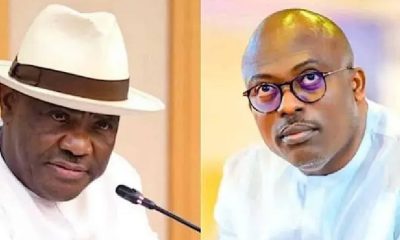
 Opinion12 hours ago
Opinion12 hours agoRIVERS, WIKE, FUBARA, AND THE WAY FORWARD
-

 Politics11 hours ago
Politics11 hours agoJust in: Delta PDP Reps members defect to APC
-

 News22 hours ago
News22 hours agoFULL STEPS: How to check 2025 JAMB results
-

 News22 hours ago
News22 hours agoMinistry denies awarding N13bn contracts without due process
-

 News16 hours ago
News16 hours agoVDM may be released on Tuesday
-

 News13 hours ago
News13 hours agoNANS Barricades Lagos-Ibadan Expressway Over Alleged NELFUND Mismanagement
-

 News13 hours ago
News13 hours agoCourt bans Nnamdi Kanu’s in-law from 3 proceedings over live streaming
-
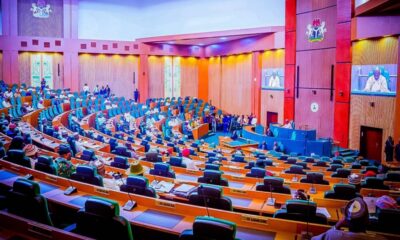
 News9 hours ago
News9 hours agoTension As Lawmakers Warns of Public Revolt Over Insecurity





